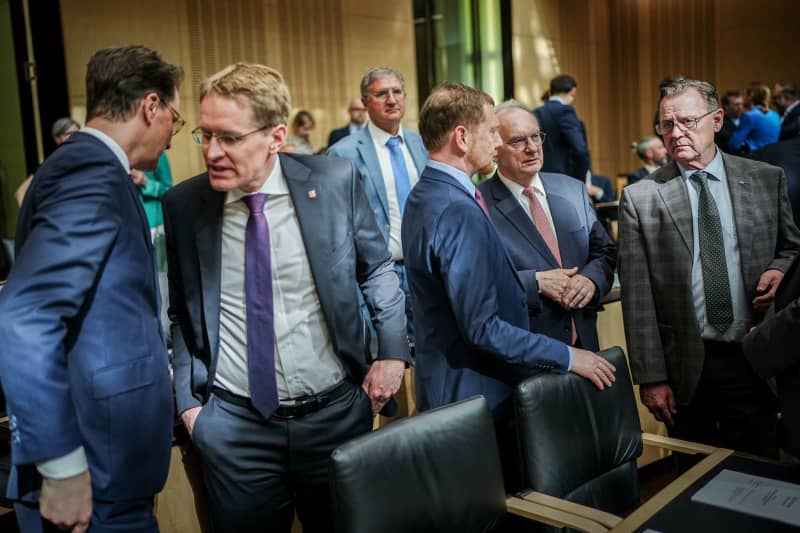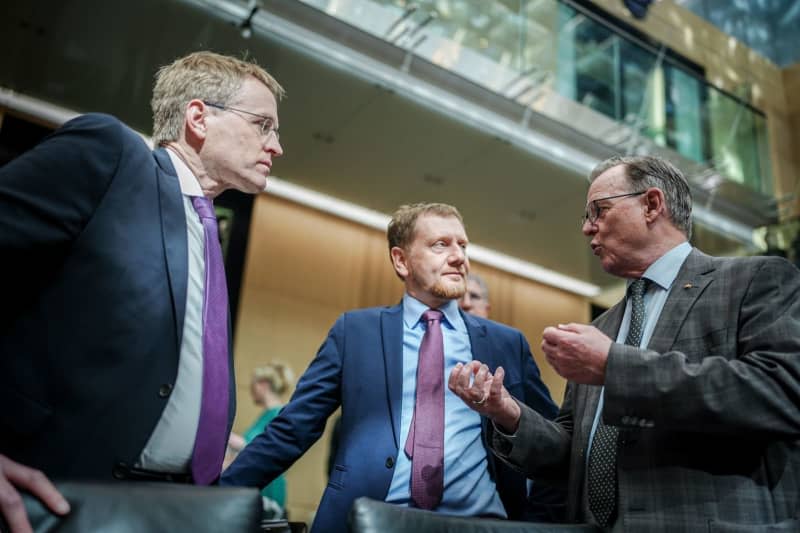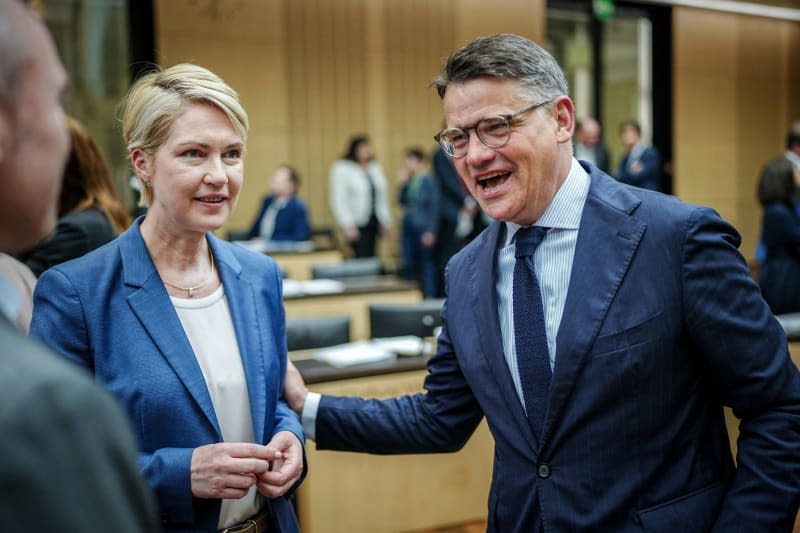German states launch initiative for closer friendship with Poland

- Oops!Something went wrong.Please try again later.
Several German federal states have launched an initiative to forge closer ties between people in Germany and Poland including visits to the neighbouring country, learning the language and building mutual understanding.
Relations between the German and Polish governments have been tense for years, mainly because of the Nord Stream pipeline that brought Russian gas to Germany under the Baltic Sea, bypassing Poland.
Since the conservative nationalist government in Warsaw was voted out of office at the end of 2023, the two governments have become politically closer again.
Around 2 million people with Polish roots live in Germany, while Poland has a recognized German minority of around 300,000 people.
Mecklenburg-Vorpommern Premier Manuela Schwesig spoke in the upper house of parliament, the Bundesrat, on Friday in favour of upgrading the German-Polish Youth Office, similar to the Franco-German Youth Office.
This had contributed a great deal to reconciliation with France, but had three times as much money as its German-Polish counterpart, said Schwesig. "We need to do more," she said.
Together with North Rhine Westphalia and Schleswig-Holstein, the eastern German states submitted a motion to the Bundesrat to strengthen relations with their eastern neighbour.
This is not just about youth work, but also, for example, more money for language lessons or a German-Polish unlimited travel rail ticket based on the Franco-German model.
At a political level, the German-Polish friendship treaty of 1991 is to be modernized, similar to the Franco-German Élysée Treaty. New life is to be breathed into the Weimar Triangle of cooperation between Germany, France and Poland.



